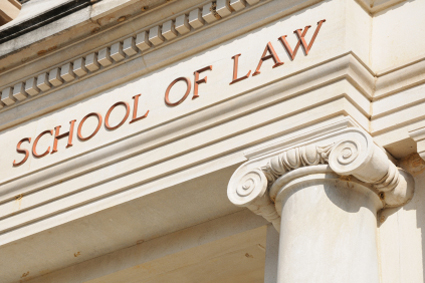
Maintaining Motivation as a Law Student
February 20, 2025
The Role of the ICC: Understanding International Justice
February 25, 2025The judgment in Dalston Projects Ltd and Others v Secretary of State for Transport (UKSC/2024/0055) is pending before the UK Supreme Court. This case concerns the detention of the luxury yacht Phi under the Russia (Sanctions) (EU Exit) Regulations 2019. The appellants challenge the decision on public law and human rights grounds, arguing that it unlawfully interferes with their property rights.
Background:
The background to these proceedings stems from the Russian invasion of Ukraine in February 2022. The claim concerns the lawfulness of the Secretary of State’s decision under the Russia (Sanctions) (EU Exit) Regulations 2019 to detain a 58.5m luxury motor yacht, MY Phi, which is beneficially owned by a wealthy Russian businessman. In their challenge to the decision, the claimants contend that the Secretary of State acted for an improper purpose under the regulations and breached the European Convention on Human Rights, specifically arguing that the detention constitutes a disproportionate interference with their property rights. Various challenges on conventional public law grounds also support these claims.
The First Appellant is a St Kitts and Nevis company and the legal owner of Phi. The Second Appellant, Mr. Naumenko, is a Russian citizen and resident who is the beneficial owner of Phi.
The yacht moored at South Dock in London in December 2021. On the date it was due to leave London, 28 March 2022, the Secretary of State for Transport (SST) issued a direction (the “Direction”) detaining Phi and requiring it to remain at South Dock (the “First Decision”). Mr. Naumenko is not (and has never been) sanctioned by the UK. However, Regulations 57C and 57D permit the SST to detain vessels controlled by a broader class of “persons connected to Russia.” Shortly after the First Decision, Grant Shapps MP, the then-SST, commented in a TikTok video that Phi “belongs to a Russian oligarch, friends of Putin.”
On 11 April 2022, the SST decided to maintain the detention Direction (the “Second Decision”). On 1 December 2022, the appellants requested that the Direction be withdrawn. On 3 January 2023, the SST (now Mark Harper MP) refused this request (the “Third Decision”).
On 27 March 2023, the appellants applied to the High Court for the Direction to be set aside on various grounds, including interference with Mr. Naumenko’s rights under Article 1 of the First Protocol to the European Convention on Human Rights (“A1P1”) and public law rationality grounds.
Proceedings:
The case of Dalston Projects Ltd and Others v Secretary of State for Transport involves the detention of the luxury yacht Phi under the Russia (Sanctions) (EU Exit) Regulations 2019. The Secretary of State detained the yacht on the grounds that it was beneficially owned by Sergei Naumenko, a Russian citizen, in response to the sanctions imposed following Russia’s actions in Ukraine.
The appellants, including Dalston Projects Ltd, contested the decision on two primary grounds:
- They argued that the decision was ultra vires, as it exceeded the powers granted to the Secretary of State under the regulations.
- They contended that the detention violated their property rights protected under A1P1 of the European Convention on Human Rights (ECHR).
Initially, the matter was brought before the High Court, where the appellants sought judicial review of the Secretary of State’s decision. They argued that there was insufficient evidence to link the yacht’s ownership to a Russian national and that the detention was disproportionate. The High Court, however, ruled in favor of the Secretary of State, concluding that the decision to detain the yacht was within the powers granted under Regulation 57D of the Russia (Sanctions) (EU Exit) Regulations 2019 and that the interference with property rights was justified in light of national security objectives.
Dissatisfied with the High Court’s decision, the appellants took the matter to the Court of Appeal. The appeal focused on two issues:
- Whether the Secretary of State had sufficient evidence to conclude that the yacht was owned or controlled by Mr. Naumenko.
- Whether the decision to detain the yacht was proportionate and compliant with human rights law.
The Court of Appeal heard detailed submissions on the factual and legal aspects of the case, including the interpretation of Regulation 57D and the proportionality test under A1P1. Following the dismissal of their appeal by the Court of Appeal, the appellants sought leave to appeal to the Supreme Court. The Supreme Court granted permission, with the appeal set to focus on the alleged breach of property rights under A1P1 and the public law principles of proportionality and legality.
Judgment:
The High Court dismissed the appellants’ challenge, finding that the Secretary of State acted lawfully and within the scope of their powers under the sanctions regime. The court concluded that there was sufficient evidence to establish that Mr. Naumenko, a Russian citizen, had a beneficial interest in the yacht, justifying its detention under Regulation 57D. Furthermore, the court held that the interference with property rights was proportionate, given the pressing need to enforce sanctions against individuals connected to the Russian state.
On 27 February 2024, the Court of Appeal upheld the High Court’s decision. In a detailed judgment, the court addressed the appellants’ arguments concerning proportionality and human rights. It emphasized that the purpose of the sanctions regime was to impose economic pressure on individuals associated with the Russian government, justifying some degree of interference with private property rights. The court also found that the Secretary of State had relied on adequate evidence to link the yacht to Mr. Naumenko, dismissing the argument that the decision was arbitrary or unsupported by facts.
Applying the proportionality test under A1P1, the Court of Appeal concluded that the interference with the appellants’ property rights struck a fair balance between the general interests of the community and the protection of individual rights. The court also rejected the argument that the Secretary of State had acted ultra vires, affirming that the detention fell squarely within the powers conferred by the Russia (Sanctions) (EU Exit) Regulations 2019.
The case is now pending before the Supreme Court, where the appellants seek to challenge the lower courts’ findings on proportionality and human rights. The Supreme Court will also consider whether the procedural safeguards in the sanctions regime provide adequate protection against arbitrary or excessive interference with property rights.
Relevant Laws:
The key legislation involved in this case is the Russia (Sanctions) (EU Exit) Regulations 2019, enacted under the Sanctions and Anti-Money Laundering Act 2018. These regulations empower the Secretary of State to detain vessels owned or controlled by persons connected with Russia. Specifically, Regulation 57D allows for the detention of ships owned by such individuals.
Commentary:
This case raises important legal questions about government power, property rights, and the enforcement of sanctions. The UK government detained the yacht Phi under the Russia (Sanctions) (EU Exit) Regulations 2019, arguing that it was controlled by a Russian businessman. The owners challenged this decision, claiming it was unlawful and violated their rights under A1P1 of the ECHR.
A crucial aspect of the case is whether the Secretary of State’s decision was based on sufficient evidence linking the yacht to a “person connected to Russia” under Regulations 57C and 57D. The Supreme Court’s pending judgment will be pivotal in clarifying the limits of government authority in implementing sanctions. This case may set a precedent on balancing national security policies and individual property rights, shaping future applications of UK sanctions law.
By Faryal Fatima





